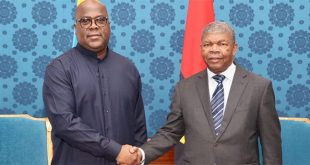
For any ministry, the Minister or at least the Minister of State is supposed to attend sittings of the House; and where none of them is able to attend, another minister should represent that Ministry’s interests in the House and notify the Speaker accordingly. Apparently that has not been the case.
Instead, the ministers have skipped the plenary sessions with impunity or, in unprecedented deception, have been accused of coming into the Parliamentary chambers, clocking in their biometric cards as though they have genuinely come to attend the plenary but staying around the chambers only long enough to sign for any available allowance money and leaving.
The question on the minds of Ugandans is why a bloated Cabinet that boasts of up to 80 ministers fails to generate business for the House? Equally, the question is why Parliament which is charged with monitoring government performance can fail to generate its own business from the numerous pressing issues?
Besides passing laws, Parliament is supposed to ensure transparency and accountability in the application of public funds, scrutinise government policy and monitors the implementation of the government programme and projects through pre-legislative scrutiny of bills referred to the Parliamentary committees by Parliament.
The lacklustre business of the House has led members of previous Parliaments to voice their frustrations.
Former leaders react
Prof. Apollo Nsibambi who served in Museveni’s government between 1999 and 2011 as Prime Minister told The Independent that there needs to be coordination between the ministers and other government agencies to generate business for Parliament. He said this is the only way to avoid “the embarrassment of convening a session without business”.
“A prime minister must write to all ministers to ensure that they have business and are coordinated,” he said.
Nsibambi said to avoid the embarrassment of convening a session without business, there needs to be coordination between the ministers and other government agencies.
He said way back when he was Prime Minister, he sometimes had to apply ‘pressure’ on ministers and often also gave copies of required government business to Permanent Secretaries.
“That is why during my time as Leader of Government Business, the House never ran short of business,” he said.
He says, as leader of government business in Parliament, he worked closely with the Chief Whip to ensure quorum of back benchers.
“It is not an easy task to have all members attend whole sessions,” he said.
During the 9th Parliament, Kadaga threatened to use elementary school-style of conducting an impromptu roll call, in order to expose some ministers who had actually signed for sitting allowances but then missed the plenary session.
Nsibambi said the issue of quorum in Parliament also needs to be addressed together with absenteeism. He said quorum in Uganda’s Parliament should be reduced to at least 20% because the current 33% contributes to the delay in passing Bills.
Partly because of lack of quorum, Parliament has so far tackled only three Bills – the Common Market for Eastern and South Africa (COMESA) treaty implementation bill 2016, the Leadership Code (Amendment) Bill 2016 and the Uganda National Health Laboratory Services Bill 2016. None has been debated and passed. There have also been a few ministerial statements on seeds to farmers in Adjumani District, management of Hepatitis B, the security situation in the county, and closure of Nakivubo stadium and a statement on loans passed by parliament since the 9th parliament.
Several commentators told The Independent that Parliament should be debating the report on electoral violence, that on child sacrifice and the recent Land Amendment Bill which seeks to give the government authority to take over land for development. The Constitutional and Electoral reforms and the Marriage and Divorce Bill also have to be debated.
As things stand, however, the 10th Parliament and Museveni’s huge cabinet appear determined to earn as much money as they can while doing as little work as possible. If Museveni and Kadaga do not end this behaviour, it will completely water down the government’s commitment on a 15-point agenda to deliver Uganda to prosperity and deliver the country to middle-income status by 2030.
****
editor@independent.co.ug
 The Independent Uganda: You get the Truth we Pay the Price
The Independent Uganda: You get the Truth we Pay the Price


